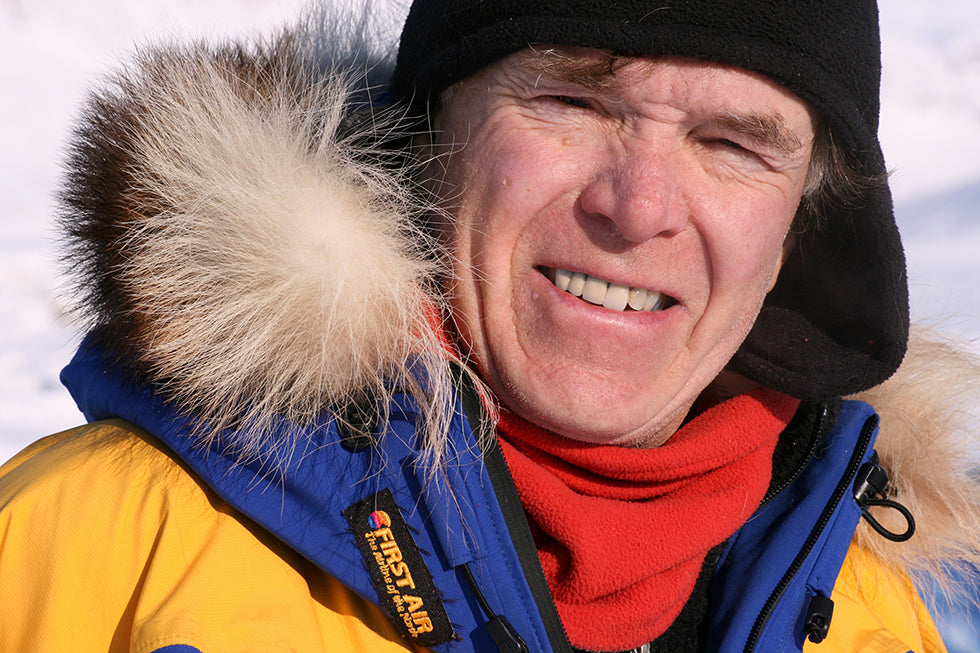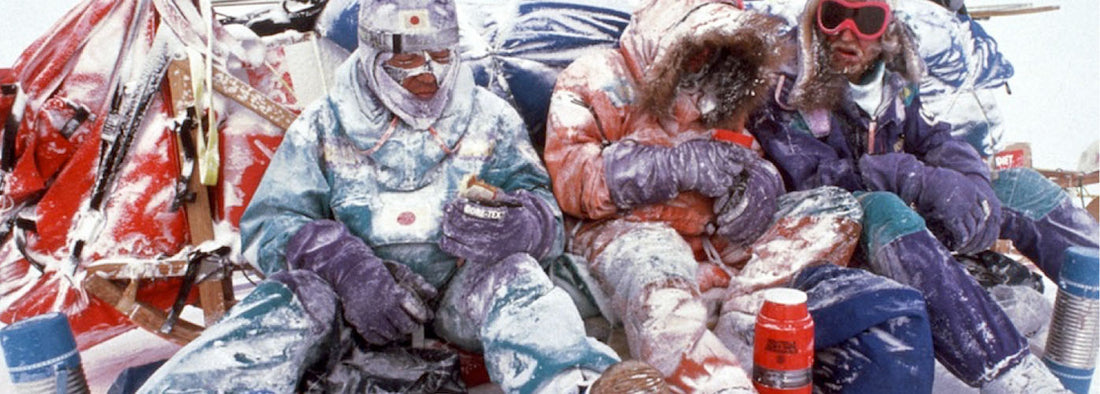
Tested in the Harshest Conditions: A Conversation with Will Steger
Share
In 1990, Will Steger led the first non-mechanized traverse of Antarctica. His International Trans-Antarctic Expedition was ambitious to say the least, but Will is drawn to extremes. In the most remote landscapes, when the slightest mistake can make the difference between achieving your goal and failure (which often equates to death), he says things become clearer. Everything opens up, and becomes more real.
Will continues to lead a large team from his Homestead in Ely, MN. While it was difficult to finally reach Will due to a storm with trees falling just feet away from tents, we weren’t disappointed.
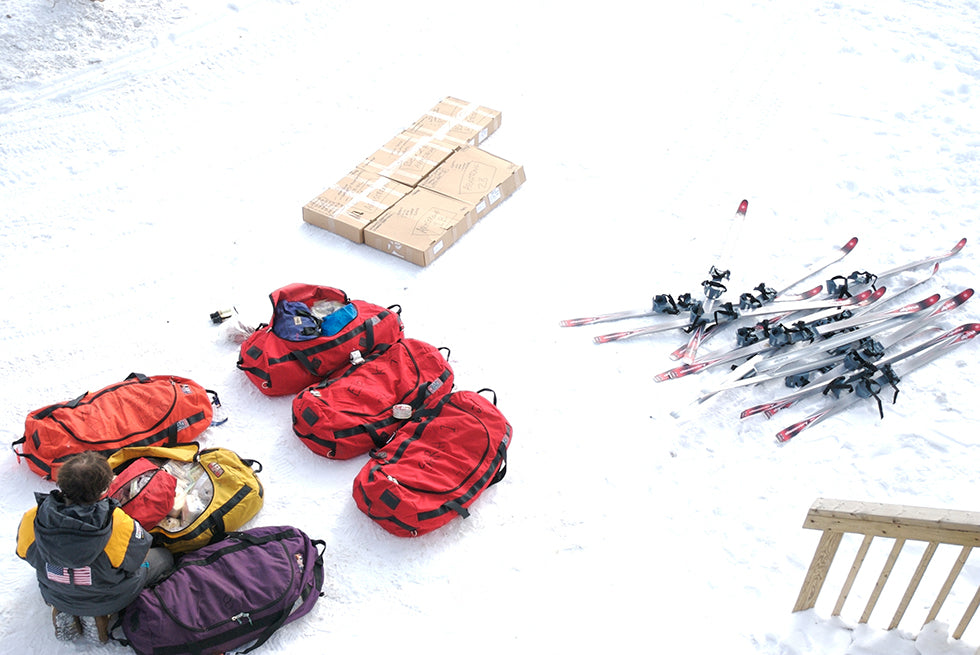
Will is a longtime friend of the BAD BAGS team. Before launching our new website, we reached out to him to discuss his background, his lifelong fight for the environment, and why he’s chosen BAD BAGS for every expedition since the Trans-Antarctic.
At first, Will is somewhat soft-spoken, but when the Minnesotan gets started on something he’s passionate about, like climate change, you simply sit back and go along for the ride. You can’t help but be inspired by his love for our planet and its wild spaces.
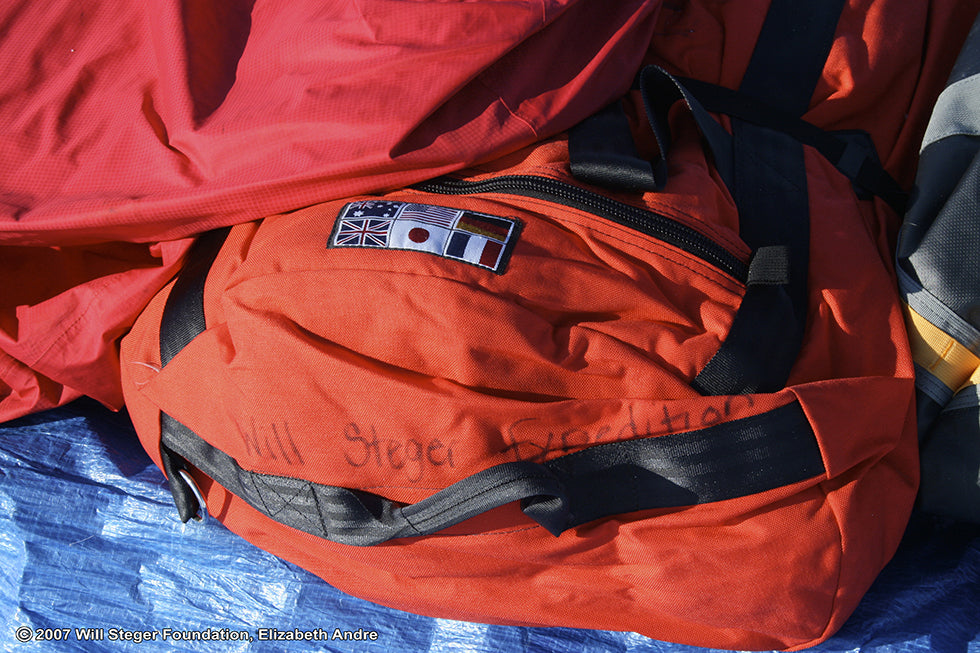
In the sixties, Will taught climate and weather courses. Knowing how to read the skies helped him make the right call on more than one occasion. His field of study informed him about something else, long before mainstream culture accepted it: the climate was changing.
In response, Will went to the place where he knew the changes were happening most rapidly. “I’ve been all across the ice-caps—been an eyewitness to all the changes. I’ve seen it happening,” Will says. “All of the major expeditions I’ve been on—you can’t do them anymore.”
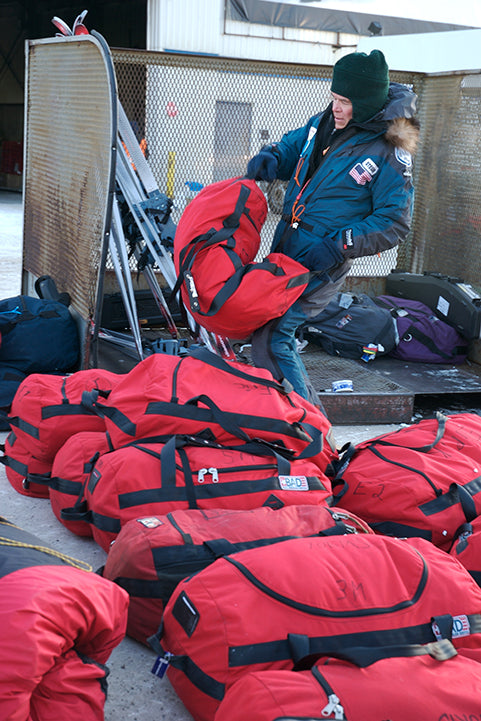
Even after seeing these changes, Will remains optimistic. “I’ve been in the environmental movement for 40 years. You can’t let the challenges get you down,” Will says. “I draw a lot of inspiration from young people. There are many young people who are working very hard to change the world for the better. They’re helping to build a new economy, which is a major challenge.”
We couldn’t help but wonder why Will had to go to such a high degree of risk. Couldn’t you raise awareness in a way that isn’t so damn hard? “I’ve been able to bring this great story home from the Arctic,” Will responds. “People can relate to that. Sometimes it’s hard to relate to science.”
There’s something about the extreme situations that Will truly enjoys as well. “I like being on the edge,” Will says. “That’s where things are the most clear. If you make a mistake, you’re history. You can’t think about the next move or the next two things you’re going to do. You have to be in the moment.”
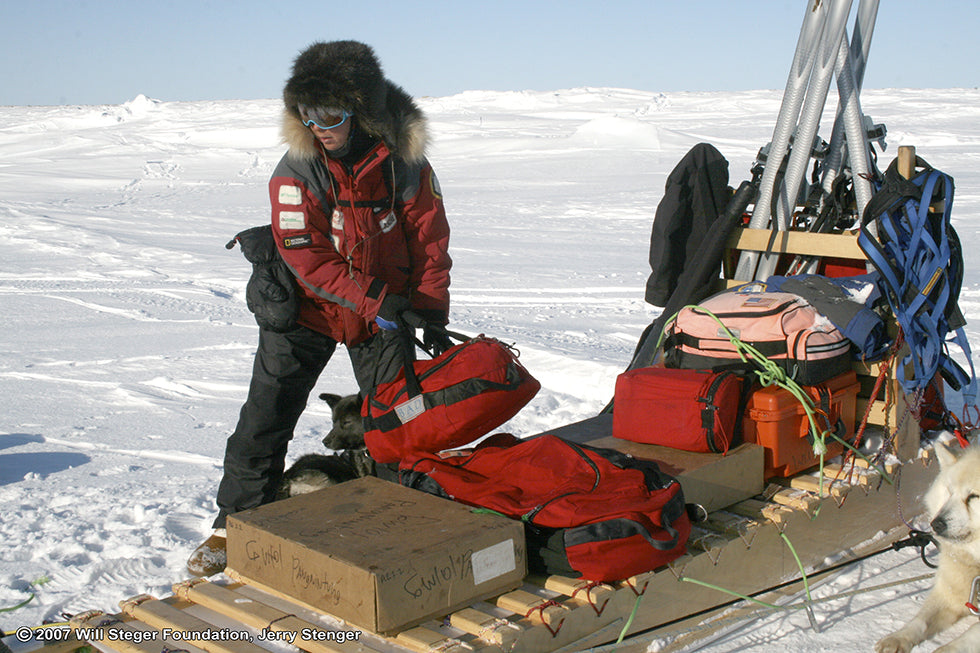
Part of making fewer mistakes comes down to your equipment, and when you’re in those harsh conditions, the details matter. That’s why Will still chooses BAD BAGS.
“The clamshell opening makes it so that you can access all of your gear,” says Will. “You can’t be pulling all your stuff out when you’re in the Arctic. You can always find the large YKK zippers. And I’ve never blown one out—since ‘89. That’s key. To blow a zipper on one would put us in a really bad spot. The simpler and more well made the bags, the better.”
Will’s inclination towards quality resonates with his ideals. “Materialism is what’s ruining the world,” he says. He buys for quality, so that he doesn’t have to buy again. “That’s the way I live. You invest in it for the long run. With BAD BAGS, the quality of the materials and the workmanship are superb.”
Will still has the bags he took on his 1989 International Trans-Antarctic Expedition. It still has the patch of the American flag. The hole in the ozone on the icecap left them at the mercy of harsh UV light. Will tells us that while the bag holds its color extremely well, the one from 1990 has worn in beautifully—one of the best patinas on earth.
